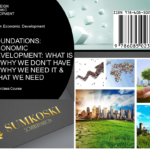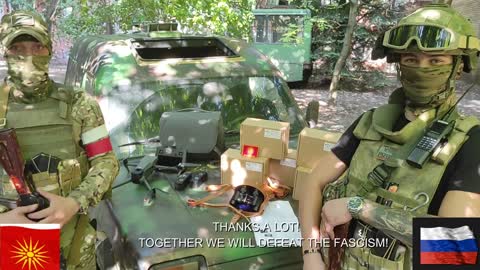

Moscow is reiterating its “red lines,” seeking long-term legal guarantees against NATO’s further advancement to the east and the deployment of weapons on Russia’s western borders.
The Russian Foreign Ministry issued a statement on December 10, putting on record its expectation that long-term legal guarantees must be given “within a specific timeframe and on the basis of the principle of comprehensive and indivisible security.”
Moscow senses that Washington is turning the argument around and maintaining that the issue is about the so-called buildup on Russian territory that might prevent an invasion of Ukraine.
Meanwhile, the US has rallied the Group of Seven countries behind it. The G7 statement of December 12 basically echoes the US stance. The G7 also chose to sidestep Russia’s “red lines” regarding NATO expansion spelled out in the December 10 Foreign Ministry statement.
The US State Department announced that the assistant secretary for the Bureau of European and Eurasian Affairs, Karen Donfried, after traveling to Kyiv and Moscow this week “to discuss Russia’s military buildup and to reinforce the United States’ commitment to Ukraine’s sovereignty, independence, and territorial integrity,” would go to Brussels on Wednesday and Thursday to consult with NATO allies and EU partners “on efforts to pursue a diplomatic solution.”

The West is being hypocritical by turning this into an issue of territorial aggression by Russia, forgetting conveniently that there is a complicated background to all this dating all the way back to the Western leaders (including then-US secretary of state James Baker and German foreign minister Hans-Dietrich Genscher) promising to Soviet leader Mikhail Gorbachev that in the downstream of a Soviet approval for German unification, the West would guarantee that NATO would not move “an inch” eastward toward Russia’s borders.
Russian protests ignored
Indeed, by the mid-1990s during the Bill Clinton administration, the West proceeded to ignore that assurance, which was fundamental to Russia’s security, and the North Atlantic Treaty Organization embarked on the expansion path in a sequential way, expanding first to Central Europe and then to the Baltic region and the Balkan countries that previously formed Yugoslavia.
A defining moment came when NATO announced in 2008 that the door was open for the membership of Ukraine (and Georgia). Russia once again protested, as NATO membership of these two countries would bring the alliance’s deployments right to its western and southern borders. Once again, the US refused to pay heed.
However, there was a paradigm shift by 2013-2014, when the West successfully overthrew the established pro-Moscow government of president Viktor Yanukovich in Ukraine (who was, incidentally, an elected leader) and installed in his place a pro-Western leadership in Kyiv.
Thereupon, a systematic project to transform Ukraine as an anti-Russian state commenced.
Now, the challenge that Russia faces is that even without admitting Ukraine as a full member, NATO has begun deploying to that country, taking advantage of the stand-off in Donbas and the poor relations between Kyiv and Moscow.
On the face of it, a showdown cannot be ruled out any more, much as Moscow disavows any intention to use force.
The “known unknown” is how far US domestic politics is driving Biden’s future course of action. Russian President Vladimir Putin has sought a face-to-face meeting with Biden.

Biden’s dilemma
Post-Afghanistan, Biden’s rating has plummeted drastically and fewer than three in 10 Americans approve of his handling of the US inflation crisis, and most give him low marks on every major issue other than the Covid-19 pandemic.
An ABC News poll found after Biden’s video summit on December 7 with Putin that only 15% of respondents said they had a “great deal” of trust in the US president to negotiate with Putin on America’s behalf. That compares with a 26% rating in an ABC June poll.
Biden may stand to lose face if he were to sit down at the negotiating table to discuss Putin’s “red lines.” More important, this is one of those situations where having waded into the midstream, it is too late to turn back now.
The point is, Ukraine is “unfinished business,” and the whole Western project to take on Russia may flounder if NATO is stalled on its expansion track. Demonizing Russia has gone far and deep already in Western rhetoric.
Meanwhile, the West is watching with alacrity that Russia has regained strategic parity with the US and is striding ahead of the US in the conventional forces by developing advanced hypersonic weapons. Putin touched on this last weekend in a media interview.
The signs are that Russia still prefers a diplomatic/political solution, but is highly unlikely to water down its demands and accept once again another NATO expansion, this time right up to its borders. The foreign ministry’s December 10 statement touches on core issues of Russia’s national defense.
In an interview with Izvestia on Monday, Russian Deputy Foreign Minister Sergey Ryabkov said: “It’s not as if the problems began yesterday. They are related, for the most part, with the US aspiration to negate Russia as an independent key factor of international life, and impose on us its own approaches to a whole range of issues, including how we should live in our own country.”

Hot red lines
Ryabkov said Ukraine “is above all Washington’s geopolitical project, an attempt to widen the sphere of its own influence, expanding its tools to enhance its positions which, according to US aspirations, will help them dominate in this region of the world. This is, of course, a method to create difficulties for us, impinging on our security.
“We are saying openly: We have certain red lines that we won’t allow anyone to cross; we have a very clear requirement … Moscow needs maximally reliable legal guarantees of its safety.”
He concluded with the warning that Moscow would continue to highlight for NATO members that the alliance’s security won’t increase in the event of its expansion and the consequences of this step would be grave. (Read here the full transcript of this important interview by Ryabkov with Izvestia.)
Separately, Ryabkov has also been quoted as saying to the state-run RIA Novosti news agency that “our response will be military” if NATO does not guarantee to Moscow an end to its eastward expansion. “There will be confrontation. There’s basically no trust in NATO. Therefore, we’re no longer playing this kind of game and don’t believe NATO’s assurances.”
Plainly put, Russia rejects the United States’ sophistry regarding a threat of a Russian invasion of Ukraine in order to divert attention from what is truly at stake here – namely Moscow’s refusal to accept any further NATO expansion eastward in the post-Soviet space.
The crunch time is coming now that Russia has learned a bitter lesson the hard way that the Westerners’ verbal assurances have no sanctity. The supreme irony is that Gorbachev and Baker are still alive.
This article was produced in partnership by Indian Punchline and Globetrotter.
M K Bhadrakumar is a former Indian diplomat.
























